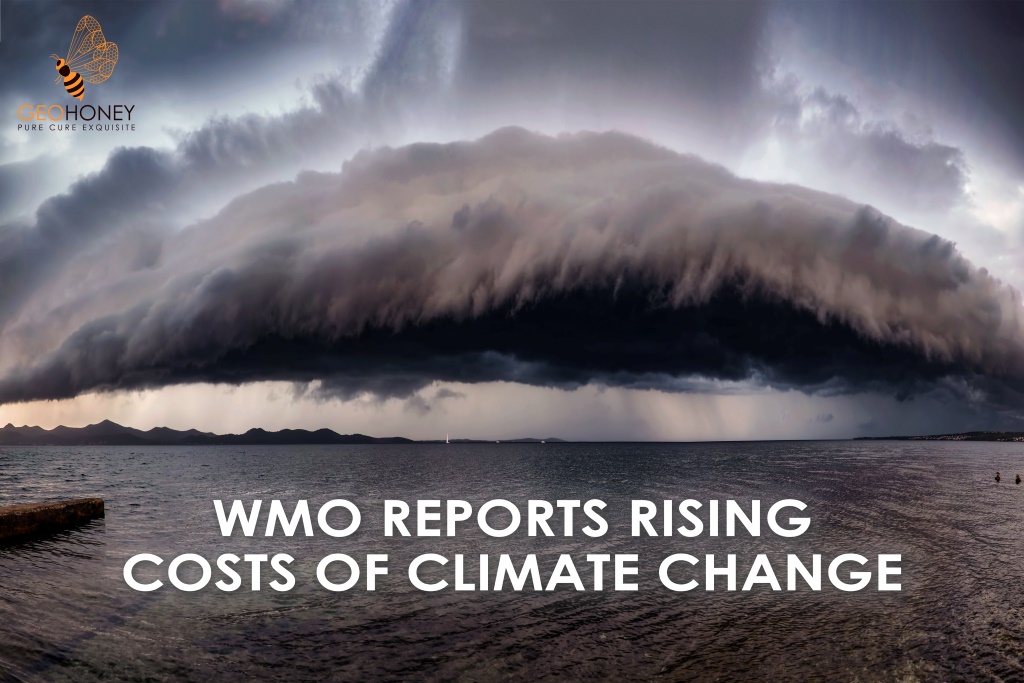- Tokyo: 12:18
- Singapore: 11:18
- Dubai: 07:18
- London: 03:18
- New York: 22:18
WMO Reports That Human, Economic & Environmental Costs of Climate Change are Rising

According to the World Meteorological Organization's newest State of the Global Climate report, the last eight years have been the eight warmest on record, with sea level rise and ocean temperature reaching new highs.
According to the organisation, its report, which was released ahead of Mother Earth Day this year, echoes UN Secretary-General António Guterres' call for "deeper, faster emissions cuts to limit global temperature rise to 1.5 degrees Celsius," as well as "massively scaled-up investments in adaptation and resilience, particularly for the most vulnerable countries and communities that have done the least to cause the crisis."
Prof. Petteri Taalas, Secretary-General of the World Meteorological Organisation, stated that "populations worldwide continue to be gravely impacted by extreme weather and climate events” in the face of rising greenhouse gas emissions and a changing climate. Last year, he emphasised, "continuous drought in East Africa, record-breaking rainfall in Pakistan, and record-breaking heat waves in China and Europe affected tens of millions, drove food insecurity, boosted mass migration, and cost billions of dollars in loss and damage."
The World Meteorological Organisation emphasises the necessity of investing in climate monitoring and early warning systems to assist alleviate the humanitarian consequences of extreme weather. According to the research, improved technology now allows the move to renewable energy "cheaper and more accessible than ever."
According to the WMO's new data, global temperatures have continued to climb, making the years 2015 to 2022 the eight warmest since systematic tracking began in 1850. WMO reports that this occurred despite three years of a cooling La Nia climate pattern.
According to the World Meteorological Organisation, concentrations of the three main greenhouse gases that trap heat in the atmosphere – carbon dioxide, methane, and nitrous oxide – reached record highs in 2021, the most recent year for which consolidated data is available, and there are indications of a continued increase in 2022.
'Off the Charts' Indicators
According to the paper, "glacier melt and sea level rise - which reached record levels in 2022 - will continue for thousands of years." According to the WMO, "Antarctic sea ice fell to its lowest extent on record, and melting of some European glaciers was literally off the charts."
Sea level rise, which threatens the survival of coastal communities and, in some cases, entire countries, has been fueled not just by melting glaciers and ice caps in Greenland and Antarctica, but also by heat-induced expansion of ocean volume. According to the World Meteorological Organisation, ocean warming has been "particularly high in the last two decades."
The Consequences are Lethal
The research investigates the numerous socioeconomic effects of extreme weather, which have caused havoc on the lives of the world's most vulnerable. Five years of drought in East Africa, combined with other causes such as armed conflict, have resulted in terrible food insecurity for 20 million people.
Flooding in Pakistan caused by heavy rains in July and August of last year killed over 1,700 people and affected 33 million people. According to the World Meteorological Organisation, total damage and economic losses were estimated at $30 billion, and by October 2022, the floods had internally displaced approximately 8 million people.
The research also adds that, in addition to displacing thousands of people, dangerous climate and weather-related events "worsened conditions" for many of the 95 million people already living in displacement throughout the year.
Early Warnings for Everyone
Prof. Petteri Taalas, Secretary-General of the World Meteorological Organisation, stated on Friday that approximately one hundred countries currently lack adequate weather services, and that the UN Early Warnings for All Initiative "aims to fill the existing capacity gap to ensure that every person on Earth is covered by early warning services."
According to Mr. Taalas, "achieving this ambitious task requires improvements in observation networks, investments in early warning, hydrological, and climate service capacities." He also emphasised the importance of coordination among UN agencies in tackling the humanitarian consequences of climate disasters, particularly in lowering death and economic losses.
Source: news.un.org




We can't foresee and foretell what might the future holds, especially what is happening around us due to climate change's effects on us. Every calamity we are experiencing all over the world is our doings.
First and foremost if all the organizations will work hand in hand and have no disagreement at all, the actions will be executed faster.